1996 Africa Cup of Nations: Nigeria’s Dramatic Withdrawal
By Mumini Alao
EXACTLY 14 days to the kick-off of the 20th Africa Cup of Nations in South Africa in January 1996, defending champions Nigeria pulled out of the competition at the eleventh hour to become the first country in history to not defend the African Cup. MUMINI ALAO narrates the full story of Nigeria’s shock withdrawal and why the government damned the consequences…

NO TRUE OBSERVER of the drama surrounding Nigeria’s withdrawal from the 20th Africa Cup of Nations in South Africa can feign ignorance of the reason behind Nigeria’s decision. Although the country’s sports minister, Jim Nwobodo cited “lack of security guarantee” from the host country as Nigeria’s reason for pulling out, the matter goes deeper than that and bothers more on politicking and diplomatic muscle-flexing between the two African giants.
South Africa actually set the ball rolling in November 1995 when its football federation, SAFA, cancelled an invitation earlier extended to Nigeria to participate in that year’s Simba Four-Nation tournament.
SAFA President Solomon Morewa in a fax message to the Nigeria Football Association on 14 November, 1995 said unequivocally that the Super Eagles’ invitation was withdrawn to register “Our strong protest to the actions of your government that executed nine (9) people last week.”
Morewa was referring to environmental activist Ken Saro-Wiwa and eight other Ogoni men who were hanged after a military tribunal found them guilty of murder. The action had brought the Nigerian government widespread condemnation with South African President Nelson Mandela being in the vanguard of countries seeking sanctions against Nigeria. SAFA was believed to have cancelled the Eagles invitation with a prompting from the South African government.
The Nigeria FA took the matter to CAF and FIFA asking for punitive measures against SAFA for bringing matters of politics to the sport, thereby infringing on the Statutes. The NFA also demanded financial compensation for expenses already incurred while preparing its team for the Four-Nations Cup.
Tourney
FIFA sat on the matter December 4, 1995 in Zurich but all it did was issue a terse warning to South Africa. The Disciplinary/Organising committee held that SAFA, being the sole organisers of the 4-Nation invitational tourney, had the right to cancel Nigeria’s invitation without monetary compensation. Obviously, the Nigerians were incensed by the FIFA verdict. And that was the point the country’s government began exploring the possibility of boycotting the Africa Cup of Nations in South Africa. Nigeria wanted revenge!
Initially, the risk of facing the heavy punishments enshrined in the CAF statues dissuaded the government from jumping at an outright withdrawal from the Nations Cup. Instead, sports minister Jim Nwobodo sent emissaries to CAF president Issa Hayatou, pressing for a change of venue from South Africa.
Unfortunately for South Africa, it was about this time that bandits invaded a boxing arena in Guguletu, near Cape Town, killing one person. Soon after that, players of Ivorien club, ASEC Mimosas were harassed by fans of home club, Orlando Pirates, during the first leg of their Champions Cup final tie in South Africa. Nigeria cited these incidents to declare South Africa unsafe for the Nations Cup, but Hayatou would not agree to shifting the Nations Cup venue. Nigeria threatened then to pull-out, but the CAF boss strongly advised against it.
Next, Nigeria tried to woo other West African countries who had qualified for the Nations Cup to call a joint boycott. Although NFA chairman Air Commodore Emeka Omeruah later denied that the subject was part of the West African Football Union (WAFU) agenda at its meeting in Abidjan in December, speculations were rife. But when Liberia, and later Cote d’Ivoire announced they had no intention of boycotting the Nations Cup finals in spite of the experience suffered by ASEC players in Johannesburg on December 2, any hope of a West African block-boycott collapsed,
By now, speculations that the Nigerian government would withdraw from the Nations Cup had reached fever-pitch. In order to forestall such move, concerned observers had begun flooding the head of state, General Sani Abacha, with pleas not to stop the Eagles.
The vocal national sports writers’ body, SWAN, quickly organised a seminar to discuss the subject. Their unanimous verdict was that it would be of greater benefit for Nigeria to participate than to boycott. Members of the Super Eagles already in town for camping towards the finals also joined the debate and passed a verdict of “Let’s Go.” Public opinion polls were in overwhelming support as well and all these put together might have influenced the government’s initial resolve to forget the 4-Nations Cup impasse, albeit reluctantly. On December 16, sports minister Jim Nwobodo announced to an exultant nation that the Super Eagles would, indeed, be going to South Africa to defend the Nations Cup trophy they had won two years before at Tunisia ’94.
Politics
“Government has been briefed and after a series of meetings, has decided to separate sports from politics,” the minister said. “Because of our respect for CAF and FIFA statutes and the Olympic charter, our national team will go to the Nations Cup. But we shall be demanding adequate guarantees for the security of our players, officials and supporters from the host country. We shall equally ask them to issue visas to as many as our government would approve for the trip to South Africa.”
Following this announcement, uncertainties about Nigeria’s participation seemed to have been rested and the Eagles finally got down to concluding plans for a training tour of Kenya, after technical adviser Jo Bonfrere’s original plan to train the team in Holland had been scuttled by the European Union (EU) sporting ban on Nigeria.
The EU ban, also in reaction to the November hanging of Ken Saro-Wiwa and his eight kinsmen, forbid European countries from having sporting contacts with Nigeria. The Dutch embassy in Lagos therefore refused to grant visas to the team and it was the same reaction when they turned to the Israeli Embassy.

Eventually, Bonfrere, after an inspection tour, settled for an alternative camping site in Kenya from where the team planned to fly to South Africa for the Nations Cup. Visas and flight tickets for the entire team had been obtained and they were scheduled to fly out on the night of Friday, December 29 when the government suddenly put a halt to the plans again. Nigeria was pulling out again of the Nations Cup!
Once again, it was sports minister Jim Nwobodo who bore the bad news. He had gone to Abuja ostensibly to collect the keys to the houses promised the players by government after their victory in Tunisia ’94. In fact, some of the players had quietly threatened not to go to Kenya until they collected their house keys. Nwobodo phoned from Abuja instructing them to wait for him. But when he arrived, he had more than house keys to deliver…
“The Federal Military Government has decided that the right security atmosphere does not prevail for Nigeria to participate in the Nations Cup in South Africa,” Nwobodo told the surprised players and an equally shocked press corps on December 30. He added: “Although the Cup of Nations is of very great sporting importance, the lives and good health of our players are far more important to the Federal Government.”
The minister explained that government had taken the action based on security reports emanating from the Nigerian Consulate in South Africa. “The South African government have refused to grant the safety guarantees that we requested,” Nwobodo added.
The government announcement jolted the entire country again and a fresh round of pleas began in earnest, directed at Abuja. Former vice-president Augustus Aikhomu, a soccer fan who was highly instrumental to the Super Eagles qualification for the 1994 World Cup in the USA, was the chief counsel for a government re-think, even offering to lead the Eagles delegation to South Africa. But this time, General Abacha’s government stuck to its guns.
Decision
Nonetheless, Nigerians continued to hope that the decision would be overturned at the last minute.
When Nwobodo addressed yet another press conference on January 4 and said Nigeria had “not yet” changed its stand, that brought fresh hopes that the government “might yet” change its position. But when the players themselves finally visited the head of state and came back saying they had accepted the government position, it signaled the final nail in the coffin.
Government did not reveal details of the “security report” which prompted it to make a final U-turn on the road to South Africa ’96, but Complete Football International (CFI) was privileged with an insight. Official sources say that the government felt slighted by the South African government’s deliberate foot-dragging on the matter of issuing visas to Nigerian officials to the Nations Cup. The case of NFA technical director Tunde Disu who was denied visa when he had to go and pay hotel deposit for the Eagles in Durban was sighted. The FA had to fax the Nigerian Embassy in Pretoria asking it to help pay ‘ the deposit because Disu could not get a visa on time.
Sports Minister Jim Nwobodo confirmed the attitude of the South African embassy officials when re-stating Nigeria’s decision to stay out of the Nations Cup. “South Africa think they are doing us a favour (by issuing visas) to allow us play in the Nations Cup. But we have now established the fact that no other African country can take us for a ride.”
Observation
Another reason Nigeria stayed out was the Nigerian consulate’s observation that the South African government was all out to embarass Nigeria in every way conceivable. The embassy alleged that the South African government had continued unabated its hostile attitude towards Nigeria, while the local media had been writing inciting reports against the country. “The only way Nigeria could have maintained its dignity as a nation in the face of all the hostility from the South African government was to pull-out the national team from the Nations Cup,” CFI was told by our government source.
Sports Minister Jim Nwobodo and FA chairman Emeka Omeruah, for the umpteenth time, drew General Abacha’s attention to the sanctions Nigeria stood to face by withdrawing, but Abacha reportedly told them he owed allegiance to the Nigerian constitution, NOT the CAF or FIFA statutes! He, however, approved Omeruah’s attendance of the CAF general assembly in Johannesburg with a brief to ensure that Nigeria’s punishment was considerably alleviated.
At the time of writing, CAF had yet to announce any reprisal against Nigeria, leaving its decision till February 2, 1996 when its Organising/Disciplinary committee would reconvene. FA chairman Emeka Omeruah, however, arrived from Johannesburg on January 18, with an assurance that Nigeria would not be ostracised by CAF. (
“The punishments will not extend beyond the Nations Cup,” Omeruah said. “We were able to present our case to CAF and FIFA and they fully understand the reasons behind our withdrawal from the Nations Cup.”
If Omeruah’s assurance comes to pass, then CAF would not stop Nigerian dubsides from participating in the continental club cups, while FIFA would keep the country in the qualifying draw already made for the 1998 World Cup finals.
Nigeria would only miss the next two editions of the Nations Cup in 1998 and the year 2000. That on its own would be a big price to pay for a country that has the depth of talent to be African champions till the end of the century.
But an adamant government official told CFI: “They say we could be banned for between four and six years, all well and good. If that is price we have to pay to keep our dignity as a nation, so be it.”
RELATED STORIES : Nigeria’s AFCON Stories Episode 11 – TUNISIA 1994 By Daniel Amokachi
Postscript: Nigeria was eventually suspended from attending two additional Nations Cup finals, 1998 and 2000. But the punishment was later to commuted to one tournament only so the Super Eagles featured in the 2000 edition which she co-hosted with Ghana).

DIARY OF A WITHDRAWAL
November 13, 1994: South Africa Football Association (SAFA) cancels Nigeria’s invitation to participate in the 1995 Simba 4-Nation tournament. In a fax signed by its president Solomon Morewa, SAFA said it was protesting the hanging of nine persons by the Nigerian government.
November 14, 1994: Nigeria Football Association (NFA) decries SAFA’s action. NFA chairman Emeka Omeruah said Nigeria had lost confidence in South Africa’s hosting of the 20th African Nations Cup and it would be pressing CAF for a shift in venue.
Sports minister Chief Jim Nwobodo also said: “If the safety of Nigerian players and officials are in jeopardy, then Nigeria might pull out of the Nations Cup.”
November 15, 1995: NFA petitions CAF and FIFA over Nigeria’s expulsion from the 4-Nations tournament, and asks for compensation. FA secretary general Sani Toro said: “We signed a contract with them (South Africa). If we had breached it, we would have paid for it, but now they’re breached it, they have to pay. We expect FIFA will do what is fair. The Statutes are clear on this matter.”
December 4, 1995: FIFA delivers a mere verdict of “warning” against SAFA, stating that a repeat of the error in the future would attract greater penalties. Nigeria meanwhile got no compensation as it demanded. The NFA is disappointed.
December 6, 1995: Nigeria’s sports minister Jim Nwobodo condemns the European Union’s sporting sanctions against Nigeria, accusing the EU of playing politics with bitterness. Meanwhile, the minister described Nigeria going to the Nations Cup in South Africa as “paying a visit to the devil in its grotto.”
December 14, 1995: Nigeria announced it would not be boycotting the Nations Cup despite South Africa’s “hostile attitude” towards it. Sports minister Jim Nwobodo, however, added that he would be asking for special safety guarantees from South Africa for the Super Eagles, their officials and supporters.
December 29, 1995: The Eagles were scheduled to fly out to Kenya to prepare for the Nations Cup but Nwobodo sent words they should await him.
December 30, 1995: Nwobodo announced that Nigeria was pulling out of the Nations Cup because the South African government had refused to give “adequate guarantees” for the safety of the Nigerian contingent.
December 31, 1995: SAFA president Solomon Morewa and South African sport minister Steve Tshwete express shock at Nigeria’s withdrawal. Tshwete says South Africa had provided all the safety guarantees Nigeria requested.
Meanwhile, CAF says it had not received any formal notification of Nigeria’s withdrawal.
January 1, 1996: Tshwete reaffirms his safety guarantees, swearing an oath. “We have nothing against the Nigerian team. We believe the government was fed with lies that players and officials would be deliberately embarrassed here,” he said.
Morewa, admitted, however that Nigeria’s decision may be retaliatory, following the country’s expulsion from the 4-Nations tournament in November.
Nwobodo said, tacitly, that only a safety guarantee from the “presidential level” in South Africa could make Nigeria change its mind.
January 2, 1996: A Nigerian delegation visits CAF president Issa Hayatou in Cameroun to explain Nigeria’s withdrawal, but Hayatou advices them to reconsider their position. Meanwhile, Eagles technical adviser Jo Bonfrere appeals to the Nigerian government to rescind its decision.
January 4, 1996: Tshwete announced he had been unable to convince the Nigerian government to change its mind. “We have given up hope on Nigeria,” he said.
Nigeria’s sports minister Jim Nwobodo announced that “Nigeria’s stand on the withdrawal had not yet changed. Our position is still the same.”
January 6, 1996: CAF announced Guinea as replacement for Nigeria in the Nations Cup. It also said sanctions to be imposed on Nigeria for withdrawing would be decided on January 9 in Johannesburg.
Meanwhile, Guinea turned down the invitation to participate. Sports minister Ibrahim Sylla said the CAF notice was too short, stressing that his country “deplored any politicisation of high competitive sports.”
January 7, 1996: The NFA returns the Africa Unity Cup won by the Eagles in Tunisia ’94 through Nigerian second vice-president of CAF, Oyo Orok Oyo who was bound for South Africa with other Nigerian-born CAF officials. The government, however, prevented one of them, Mr. Patrick Okpomo, from traveling.
January 9, 1996: CAF decides not to replace Nigeria at the Nations Cup, asking the Nigerian government to still reconsider its decision and send its team, instead. Super Eagles players visit their head of state General Sani Abacha who explained why government would not change its position. The players accepted his explanation.
January 10, 1996: CAF finally cancels Nigeria’s fixtures at the Nations Cup. FIFA president Joao Havelange arrived South Africa and sent a fax message appealing to the Nigerian government to reconsider its decision to no avail.
January 13, 1996: The 20th African Cup of Nations get under way in South Africa without Nigeria. And government electronic media blacked out the competition!


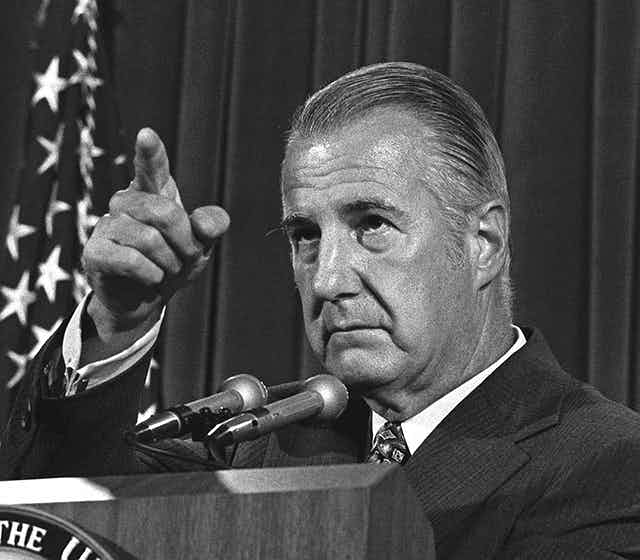
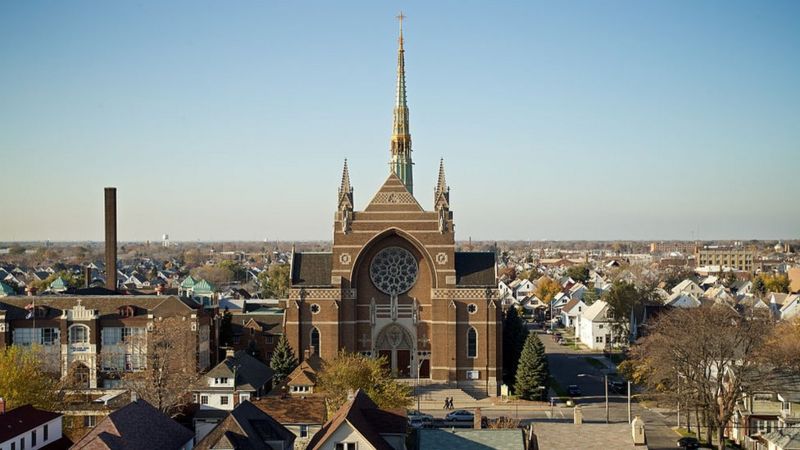
![Flashback: How Kanu and Finidi won Champions League with Ajax Amsterdam 25 years ago [Video] 11 Flashback: How Kanu and Finidi won Champions League with Ajax Amsterdam 25 years ago [Video] 7](https://naijasuperfans.com/wp-content/uploads/2021/03/Screenshot_20210304-144127-01.jpeg)
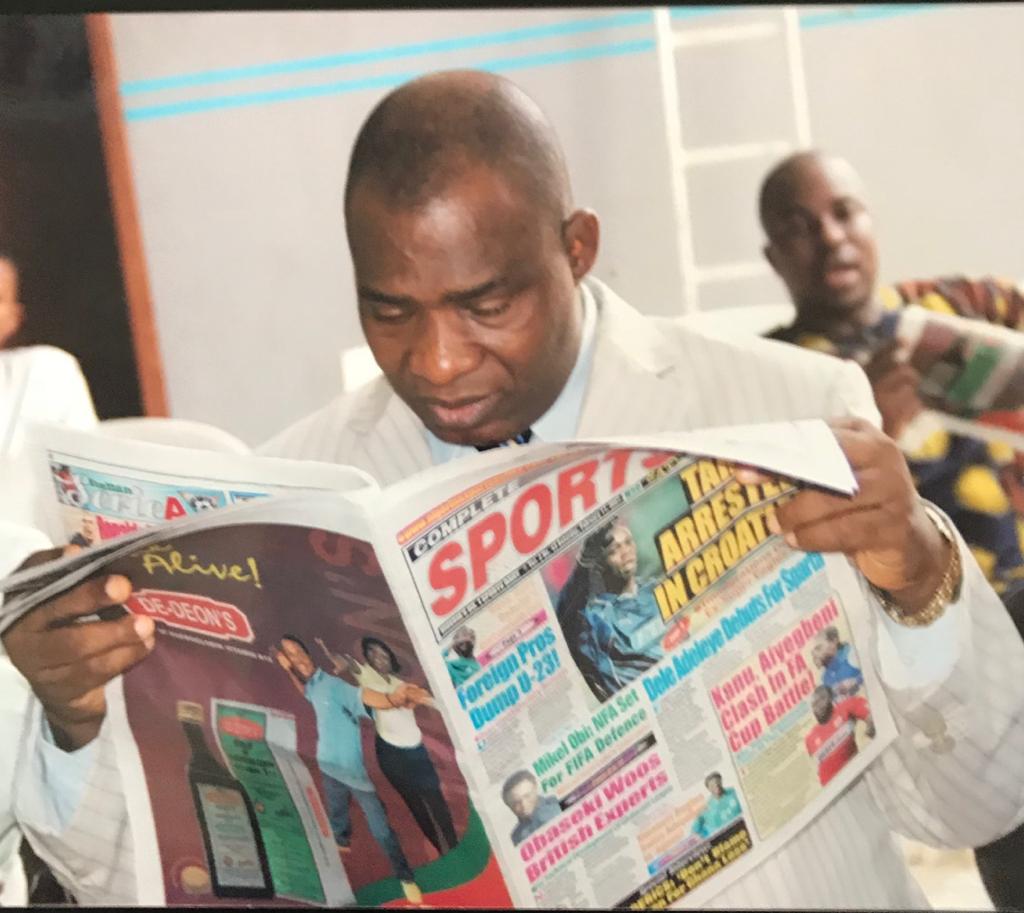
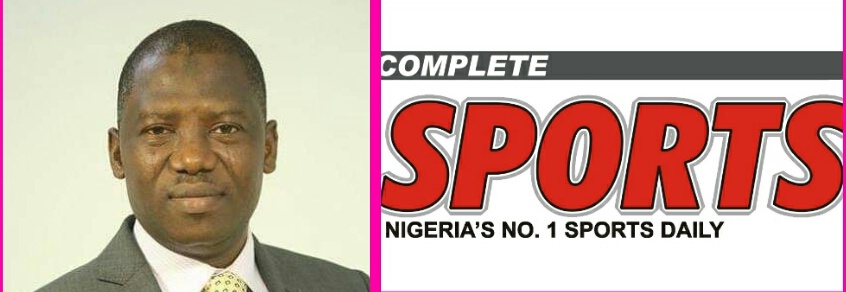
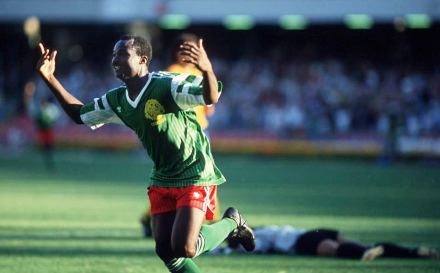
![Podcast EP 17: Listen to late Stephen Keshi talk about his AFCON story [1] 15 Podcast EP 17: Listen to late Stephen Keshi talk about his AFCON story [1] 11](https://naijasuperfans.com/wp-content/uploads/2020/05/stephen-keshi-1.jpg)
![Watch Odegbami recreate his first goal in the 1980 AFCON final [Video] 16 Watch Odegbami recreate his first goal in the 1980 AFCON final [Video] 12](https://naijasuperfans.com/wp-content/uploads/2020/03/20200323_165745.png)
![How Nigeria won AFCON in 1980 – Segun Odegbami with Mumini Alao [Video] 17 How Nigeria won AFCON in 1980 – Segun Odegbami with Mumini Alao [Video] 13](https://naijasuperfans.com/wp-content/uploads/2020/03/20200321_201622.png)


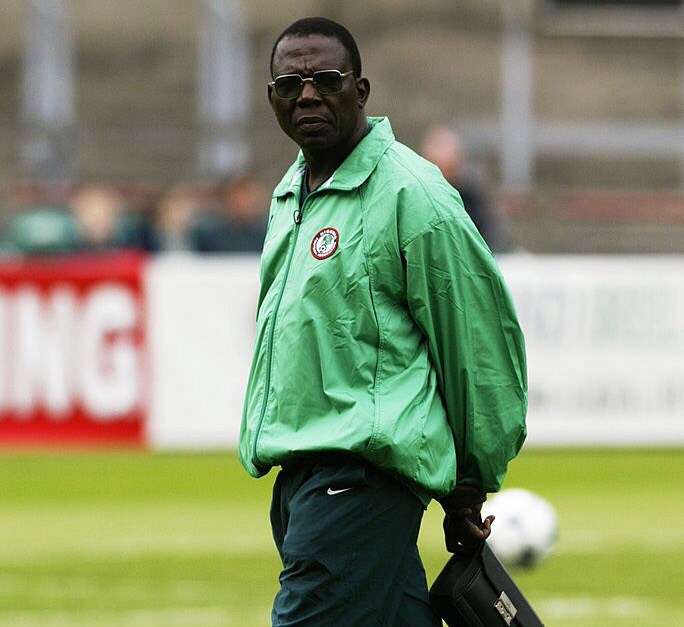
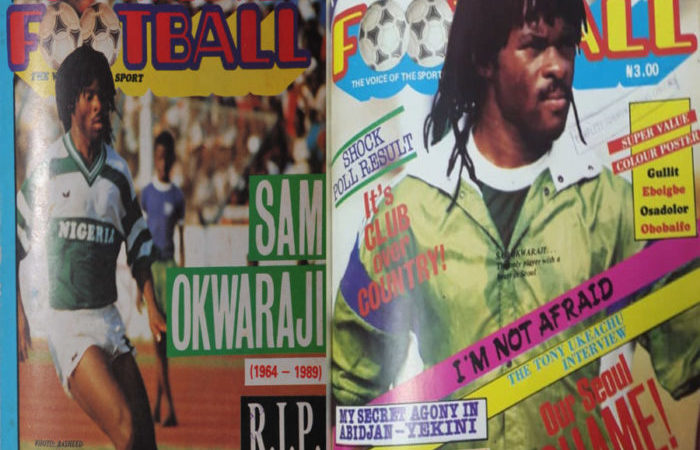
Pingback: Nigeria's AFCON Stories Episode 13 - GHANA/NIGERIA 2000 By Ike .s